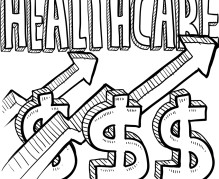It was a big weekend for Obamacare news:
Aetna and Humana, two insurance giants, announced Friday they plan to merge “in the wake of the federal Affordable Care Act and other changes in the healthcare industry.”
Anthem and Cigna, two other insurance giants, renewed their merger talks, in an effort “to be more competitive in a healthcare landscape dramatically altered by the Affordable Care Act and other developments.”
And insurers across America “are seeking rate increases of 20 percent to 40 percent or more, saying their new customers under the Affordable Care Act turned out to be sicker than expected, the New York Times reported.
These developments paint an unsurprising picture: more government–in the form of mandates, regulations, and subsidies–is yielding more consolidation, higher prices, and less consumer choice.
Scott Gottlieb, a doctor and my colleague at AEI, explains it well in an op-ed at the Wall Street Journal:
The wave of mergers poised to sweep the industry is a result of this kind of regulation. To sustain themselves, insurers must spread fixed costs over a larger base of members. The bigger they are, the easier it is to meet the government-imposed cap on their operating costs while cutting their way to profitability.
This same pressure discourages new health plans from launching. Startups often must channel more money into initial operating expenses. But the caps largely prevent this, so the market stagnates.
So it’s no surprise to read a healthcare expert say in the New York Times: “Rate increases will be bigger in 2016 than they have been for years and years and will have a profound effect on consumers here. Some may start wondering if insurance is affordable or if it’s worth the money.”
Similarly Obamacare is driving consolidation in the hospital industry, driving up costs.
This is what big government tends to do: erect barriers to entry and add to overhead, spurring consolidation and reducing competition — good for the incumbents, bad for would-be competitors and for consumers.
© 2015 by the Washington Examiner. Reprinted with permission.
